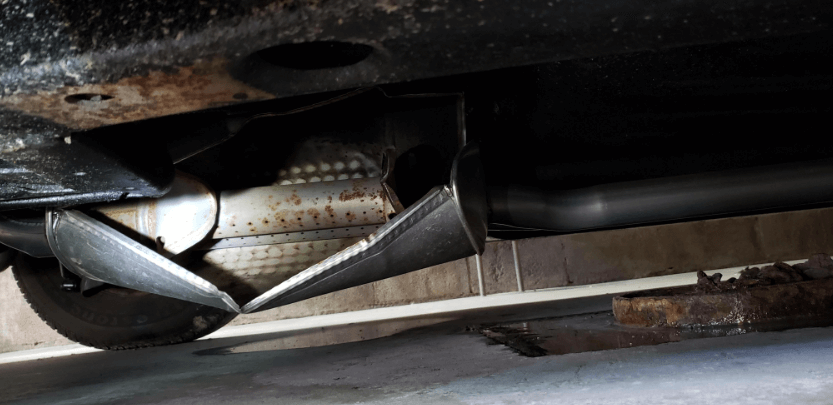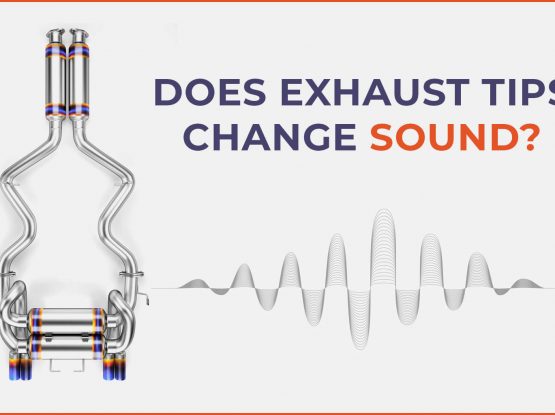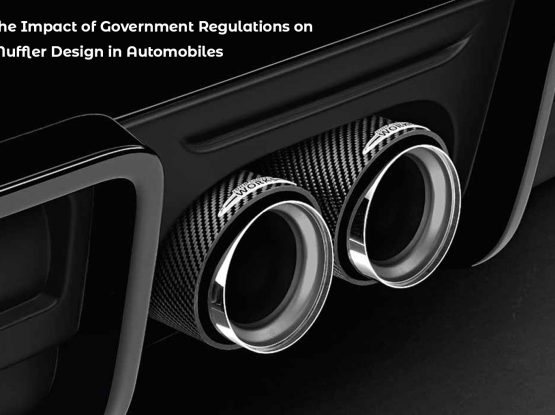It’s a jaw-dropping prospect, isn’t it? The notion that some unprecedented influence could cause a muffler to explode. Like a blocked pipe in a plumbing system, pressure builds when a fluid-conveying tube is obstructed. Unlike the dirty backup spawned by clogged plumbing, the pressure build-up in the exhaust could make the muffler rupture, so what’s generating the build-up? Is it a blockage, or is it something else?
System Deterioration
The catalytic converter is loaded with ceramic parts and honeycombed metal plates. Each unit is slightly different due to architectural variances, but metal assemblies and heat-absorbing elements are always part of the inner workings. They catalyze engine fumes while releasing harmless gasses into the tailpipe. Unfortunately, these elements are susceptible to damage. Pushed forward by engine backpressure, the broken innards of a catalytic converter will create a blockage. From here, the pressure goes to work on the muffler seam. In short, it explodes.
Fuel-Rich Mixes
Aftermarket modifications and performance-tuned adjustments are best left to the experts. Otherwise, a poorly enriched fuel setting could cause the engine to backfire. Again, the echoing force propagates through the tubes, hits the interior of the muffler, and splits the seam wide open. It’s a case of the weakest link in the backpressure-constraining chain experiencing a catastrophic failure event. The recipe for muffler damage becomes even more volatile when the driver pushes the accelerator pedal all the way to the floor, but performance-capable noise mitigation chambers should be able to handle the overhead.
Worn Out and Burned Out
As the muffler is the last stop before the tailpipe, it’s expected to act as the ultimate high-flow component. It’s hot and corrosive down here, gas-constrained and noisy, but this terminating chamber will reflect the toughened performance rating of the performance motor. If it doesn’t accommodate driver enthusiasm, any recent modifications, and this newly incorporated exhaust-aggressive performance profile, well, a substandard muffler will likely react explosively the next time the engine takes a deep and throaty breath, so always fit a durable muffler.
What could cause a muffler to explode? A partial exhaust system replacement or engine overhaul will abrade substandard parts. Factory-installed mufflers fall into this category, unfortunately. Next fuel rich modifications detonate as “backfire” inside the exhaust system. Tuning issues are also responsible for this system-damaging sound, with mistiming cylinders causing the event to propagate down the gas emission channel and into the muffler. The resulting seam split is aggressively loud, explosive, to say the least.
Trufit Exhaust
437 Warrigal Road,
Moorabbin, VIC 3189
Australia
Areas serviced: Melbourne
Tel: 03 9555 5688
Trufit Exhaust on Google Maps
Trufit Exhaust on Google Search




